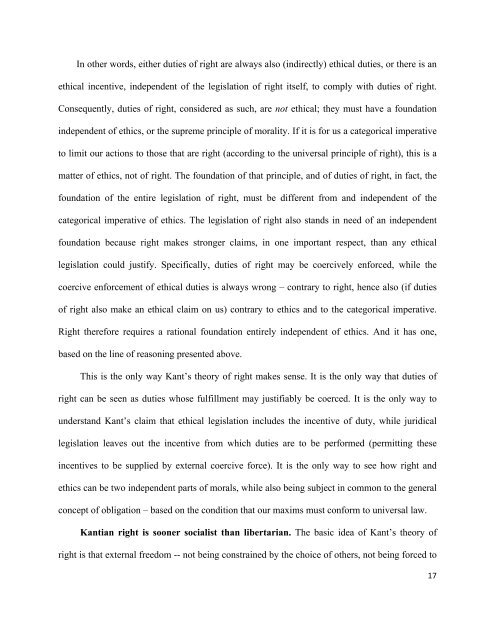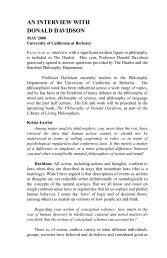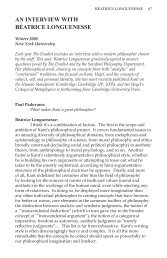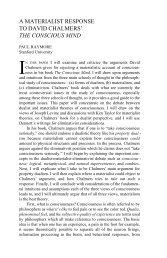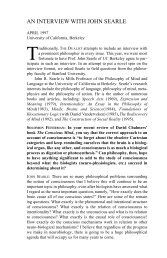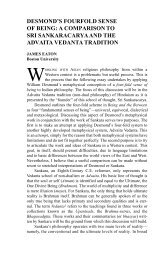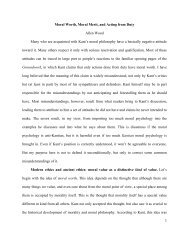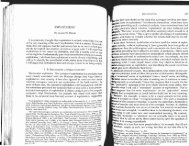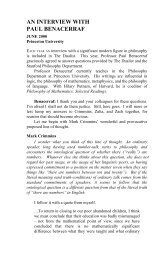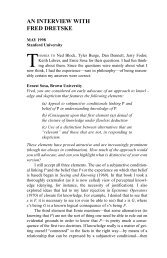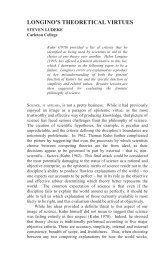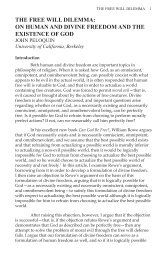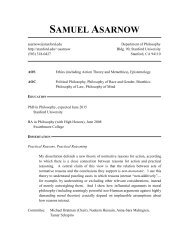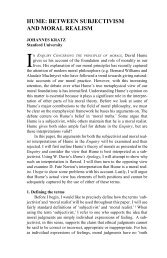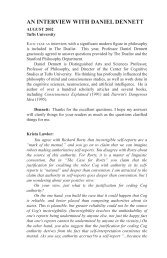The Independence of Right from Ethics Allen Wood Right and ethics ...
The Independence of Right from Ethics Allen Wood Right and ethics ...
The Independence of Right from Ethics Allen Wood Right and ethics ...
Create successful ePaper yourself
Turn your PDF publications into a flip-book with our unique Google optimized e-Paper software.
In other words, either duties <strong>of</strong> right are always also (indirectly) ethical duties, or there is anethical incentive, independent <strong>of</strong> the legislation <strong>of</strong> right itself, to comply with duties <strong>of</strong> right.Consequently, duties <strong>of</strong> right, considered as such, are not ethical; they must have a foundationindependent <strong>of</strong> <strong>ethics</strong>, or the supreme principle <strong>of</strong> morality. If it is for us a categorical imperativeto limit our actions to those that are right (according to the universal principle <strong>of</strong> right), this is amatter <strong>of</strong> <strong>ethics</strong>, not <strong>of</strong> right. <strong>The</strong> foundation <strong>of</strong> that principle, <strong>and</strong> <strong>of</strong> duties <strong>of</strong> right, in fact, thefoundation <strong>of</strong> the entire legislation <strong>of</strong> right, must be different <strong>from</strong> <strong>and</strong> independent <strong>of</strong> thecategorical imperative <strong>of</strong> <strong>ethics</strong>. <strong>The</strong> legislation <strong>of</strong> right also st<strong>and</strong>s in need <strong>of</strong> an independentfoundation because right makes stronger claims, in one important respect, than any ethicallegislation could justify. Specifically, duties <strong>of</strong> right may be coercively enforced, while thecoercive enforcement <strong>of</strong> ethical duties is always wrong – contrary to right, hence also (if duties<strong>of</strong> right also make an ethical claim on us) contrary to <strong>ethics</strong> <strong>and</strong> to the categorical imperative.<strong>Right</strong> therefore requires a rational foundation entirely independent <strong>of</strong> <strong>ethics</strong>. And it has one,based on the line <strong>of</strong> reasoning presented above.This is the only way Kant’s theory <strong>of</strong> right makes sense. It is the only way that duties <strong>of</strong>right can be seen as duties whose fulfillment may justifiably be coerced. It is the only way tounderst<strong>and</strong> Kant’s claim that ethical legislation includes the incentive <strong>of</strong> duty, while juridicallegislation leaves out the incentive <strong>from</strong> which duties are to be performed (permitting theseincentives to be supplied by external coercive force). It is the only way to see how right <strong>and</strong><strong>ethics</strong> can be two independent parts <strong>of</strong> morals, while also being subject in common to the generalconcept <strong>of</strong> obligation – based on the condition that our maxims must conform to universal law.Kantian right is sooner socialist than libertarian. <strong>The</strong> basic idea <strong>of</strong> Kant’s theory <strong>of</strong>right is that external freedom -- not being constrained by the choice <strong>of</strong> others, not being forced to17


